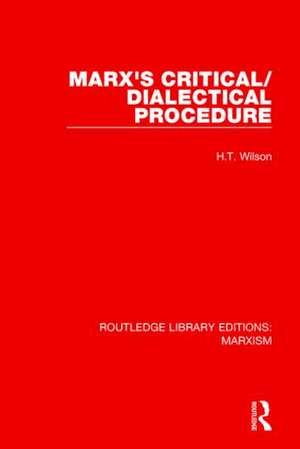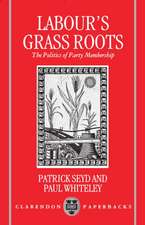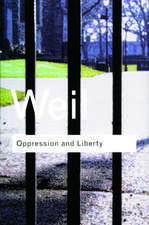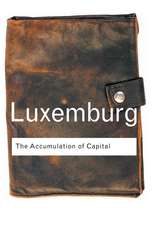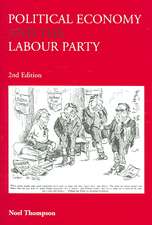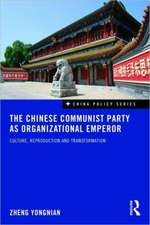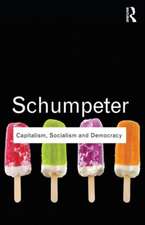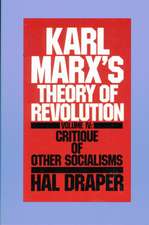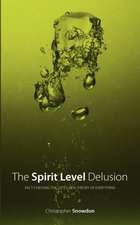Marx's Critical/Dialectical Procedure: Routledge Library Editions: Marxism
Autor H. Wilsonen Limba Engleză Hardback – 8 apr 2015
Din seria Routledge Library Editions: Marxism
- 17%
 Preț: 259.98 lei
Preț: 259.98 lei - 16%
 Preț: 241.15 lei
Preț: 241.15 lei - 17%
 Preț: 259.98 lei
Preț: 259.98 lei - 15%
 Preț: 702.25 lei
Preț: 702.25 lei - 34%
 Preț: 680.31 lei
Preț: 680.31 lei - 18%
 Preț: 1002.63 lei
Preț: 1002.63 lei - 16%
 Preț: 241.15 lei
Preț: 241.15 lei - 15%
 Preț: 671.56 lei
Preț: 671.56 lei - 43%
 Preț: 172.64 lei
Preț: 172.64 lei - 18%
 Preț: 1005.01 lei
Preț: 1005.01 lei - 18%
 Preț: 1001.07 lei
Preț: 1001.07 lei - 17%
 Preț: 256.32 lei
Preț: 256.32 lei - 16%
 Preț: 241.15 lei
Preț: 241.15 lei - 17%
 Preț: 178.76 lei
Preț: 178.76 lei - 16%
 Preț: 243.90 lei
Preț: 243.90 lei - 18%
 Preț: 1001.07 lei
Preț: 1001.07 lei - 17%
 Preț: 247.40 lei
Preț: 247.40 lei - 18%
 Preț: 1061.06 lei
Preț: 1061.06 lei - 18%
 Preț: 1281.24 lei
Preț: 1281.24 lei - 18%
 Preț: 1287.54 lei
Preț: 1287.54 lei - 16%
 Preț: 241.15 lei
Preț: 241.15 lei - 34%
 Preț: 7528.09 lei
Preț: 7528.09 lei
Preț: 1004.20 lei
Preț vechi: 1224.64 lei
-18% Nou
Puncte Express: 1506
Preț estimativ în valută:
192.19€ • 200.11$ • 162.42£
192.19€ • 200.11$ • 162.42£
Carte tipărită la comandă
Livrare economică 08-22 martie
Preluare comenzi: 021 569.72.76
Specificații
ISBN-13: 9781138886964
ISBN-10: 1138886963
Pagini: 268
Dimensiuni: 156 x 234 x 20 mm
Greutate: 0.57 kg
Ediția:1
Editura: Taylor & Francis
Colecția Routledge
Seria Routledge Library Editions: Marxism
Locul publicării:Oxford, United Kingdom
ISBN-10: 1138886963
Pagini: 268
Dimensiuni: 156 x 234 x 20 mm
Greutate: 0.57 kg
Ediția:1
Editura: Taylor & Francis
Colecția Routledge
Seria Routledge Library Editions: Marxism
Locul publicării:Oxford, United Kingdom
Public țintă
Postgraduate and UndergraduateCuprins
1. Marx’s Critique of Political Economy as a Problem-Posing Framework 2. Conceptualization and Critique in Marx and Today 3. The Meaning and Significance of Marx’s Critique of the Method of Political Economy 4. Making Analytical and Practical Sense of Marx’s Critical/Dialectical Procedure 5. Ontological Underpinnings of the Critical/Dialectical Procedure 6. Retroduction and Empiricism in Marx’s Practice and Theory of Understanding 7. Labour as the Objective Basis of Materialist Dialectics
Descriere
This book, first published in 1991, demonstrates that Marx is the legitimate founder of what was to become the critical theory of society. It argues that in order to justify a new conception of humans as collective, cultural and historical beings, Marx undertook a radical critique of the theoretical/analytical method of his predecessors and his contemporaries in political economy, philosophy and the natural sciences. While elements of the methods of some of these thinkers – most conspicuously from the work of Aristotle, Kant and Hegel – were present in Marx’s thought, he achieved a new synthesis of procedural, epistemological and ontological methods.
